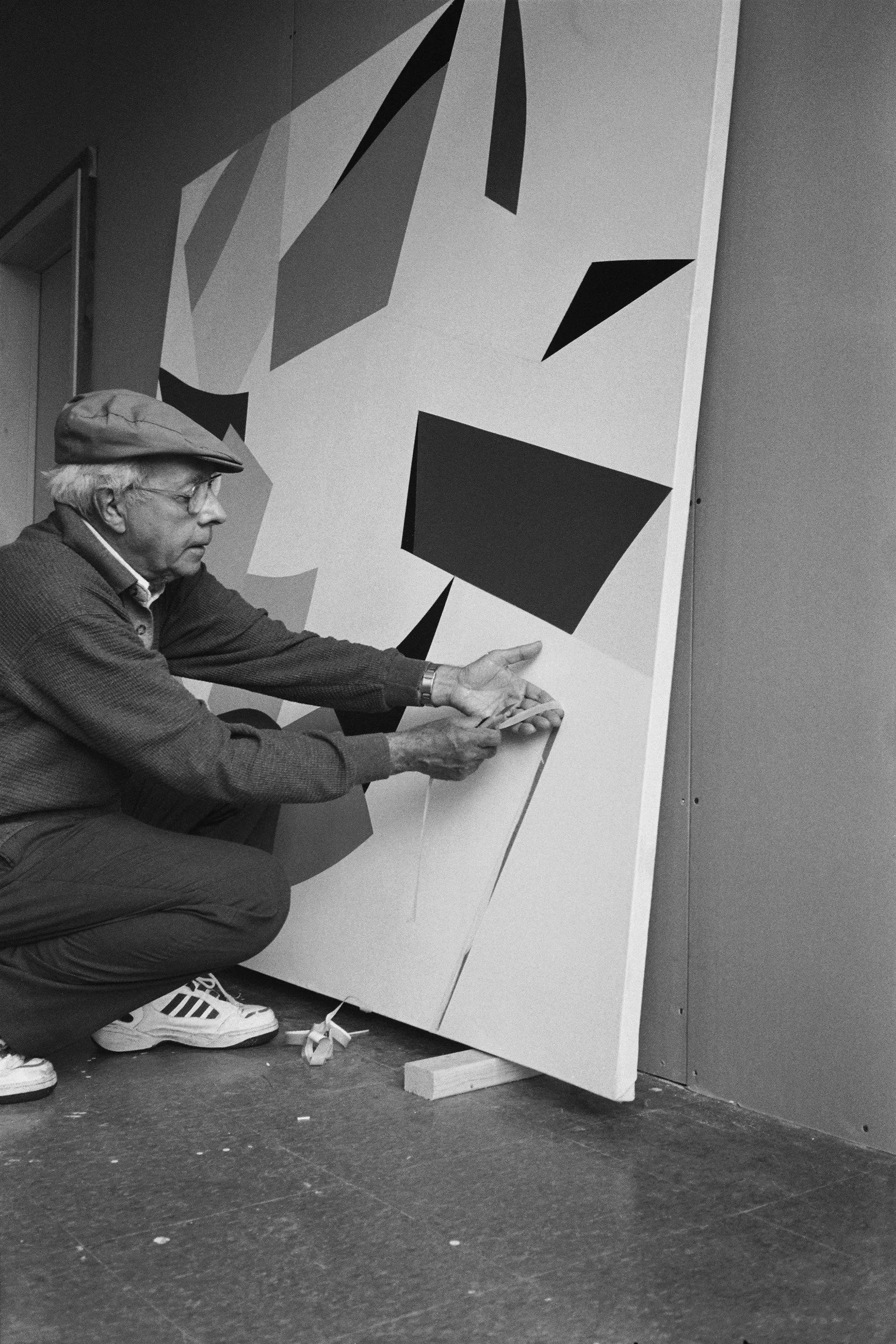Marcel Barbeau (1925-2016) was a prolific Canadian painter and sculptor, renowned for his contributions to the abstract art movement in Canada. Born in Montreal, Quebec, Barbeau was influenced by prominent figures such as Paul-Émile Borduas. He became a key member of Les Automatistes, a group of avant-garde artists and intellectuals led by Borduas, who sought to break free from traditional artistic constraints and embraced spontaneous, automatic creation. This group published the revolutionary manifesto "Refus global" in 1948, advocating for artistic and social liberation. Barbeau's early works were characterized by dynamic compositions and a vibrant use of color, reflecting the principles of automatism and his interest in the subconscious.
Throughout his career, Marcel Barbeau's artistic style evolved, encompassing various forms including painting, sculpture, and multimedia installations. He exhibited extensively in Canada and internationally, garnering acclaim for his innovative approach and contributions to contemporary art. Barbeau's works are held in major collections, such as the National Gallery of Canada and the Montreal Museum of Fine Arts. He received numerous accolades, including the prestigious Governor General's Award in Visual and Media Arts in 2013. Barbeau's legacy is marked by his relentless pursuit of artistic expression and his influence on subsequent generations of artists, cementing his status as a pivotal figure in Canadian art history.



